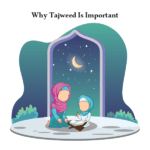In Islam, the concept of “shirk” holds significant importance. Shirk in Islam refers to the act of associating partners with Allah, the one and only God. It is considered one of the gravest sins in Islam and is strictly forbidden. This article aims to provide a comprehensive understanding of shirk, its types, consequences, and how Muslims are encouraged to avoid it in their faith and actions.
What is Shirk in Islam?
Shirk in Islam refers to the sin of associating partners with Allah (God) or attributing divine qualities or powers to anyone or anything other than Allah. It is considered the gravest sin in Islam and is seen as a violation of the fundamental principle of monotheism, known as Tawhid.
In the Quran, Allah states,
إِنَّ ٱللَّهَ لَا يَغْفِرُ أَن يُشْرَكَ بِهِۦ وَيَغْفِرُ مَا دُونَ ذَٰلِكَ لِمَن يَشَآءُ ۚ وَمَن يُشْرِكْ بِٱللَّهِ فَقَدِ ٱفْتَرَىٰٓ إِثْمًا عَظِيمًا
Indeed, Allāh does not forgive association with Him, but He forgives what is less than that for whom He wills. And he who associates others with Allāh has certainly fabricated a tremendous sin.
(AlQuran 4:48)
Muslims believe in the absolute oneness of Allah, and they emphasize the concept of monotheism in their faith. The Quran, the holy book of Islam, repeatedly emphasizes the importance of believing in the oneness of Allah and warns against shirk. Muslims are required to worship and submit to Allah alone, recognizing His unique qualities and attributes.
Types of Shirk in Islam:
There are two types of Shirk in Islam: Major Shirk and Minor Shirk. Let’s explore each category:
Major Shirk:
Major shirk refers to the most severe and blatant form of shirk in Islam, which involves associating partners with Allah in His divinity, lordship, or worship. It includes:
- Shirk al-Asma’ wa al-Sifat (Associating partners in the names and attributes of Allah): This form of shirk occurs when someone assigns the names or attributes of Allah to other beings or objects. For example, attributing knowledge of the unseen to a human being.
- Shirk al-Ibadah (Associating partners in worship): This form of shirk occurs when acts of worship, such as prayer, supplication, or sacrifice, are directed to anyone other than Allah. It includes idol worship, seeking intercession from the dead, or performing acts of devotion with the intention of pleasing other entities besides Allah.
- Shirk al-Tawheed al-Rububiyyah (Associating partners in the lordship of Allah): This form of shirk occurs when someone believes that there are other creators, sustainers, or providers besides Allah. It denies the concept of Allah’s exclusive control and ownership over the universe.
Minor Shirk:
Minor shirk refers to subtle or hidden forms of shirk in Islam that may not reach the level of major shirk but still diminish a person’s faith and devotion to Allah. Although lesser in severity, Muslims are still advised to avoid minor shirk. Examples include:
- Riya’ (Showing off): Performing acts of worship with the intention of gaining praise, recognition, or approval from others instead of seeking the pleasure of Allah.
- Al-Shirk al-Khafi (Hidden shirk): This refers to hidden forms of shirk, such as relying excessively on charms, talismans, or superstitions, believing that they possess powers to bring benefit or ward off harm, instead of putting complete trust in Allah.
- Al-Shirk al-Hakimi (Shirk in governance): This occurs when someone refers to man-made laws or systems as superior to or independent of the laws prescribed by Allah.
It is important to note that while major shirk is a grave sin and nullifies a person’s Islamic faith, minor shirk in Islam is considered a lesser sin but still discouraged. Muslims strive to avoid all forms of shirk and maintain a pure and sincere belief in the oneness of Allah (Tawhid).
Ways to avoid Shirk in Islam:
To avoid shirk in Islam, here are some important ways to uphold the principle of Tawhid (oneness of Allah) and maintain a pure belief in Islam:
- Firm belief in the oneness of Allah
- Study and understand Islamic teachings
- Worship Allah alone
- Seek knowledge of Allah’s names and attributes
- Avoid idolatry and superstitions
- Guard against showing off
- Put trust and reliance in Allah
- Increase in remembrance of Allah
- Seek knowledge and critical thinking
- Surround yourself with righteous company
By implementing these guidelines, you can strive to avoid shirk and maintain a sincere and pure relationship with Allah in accordance with Islamic teachings.
Conclusion
Muslims are obligated to strictly avoid shirk in Islam and uphold the principle of Tawhid. It is considered a fundamental pillar of Islamic belief, and violating this principle is viewed as a severe offense with grave consequences. Muslims are encouraged to worship and dedicate their acts of devotion exclusively to Allah and seek His guidance and mercy alone.
It is crucial for Muslims to understand the different types of shirk, its consequences, and how to avoid it through sincere worship and adherence to Tawhid. By seeking knowledge, repenting, and staying steadfast in their faith, Muslims can safeguard themselves from the grave sin of shirk and strive towards a stronger connection with Allah.

















